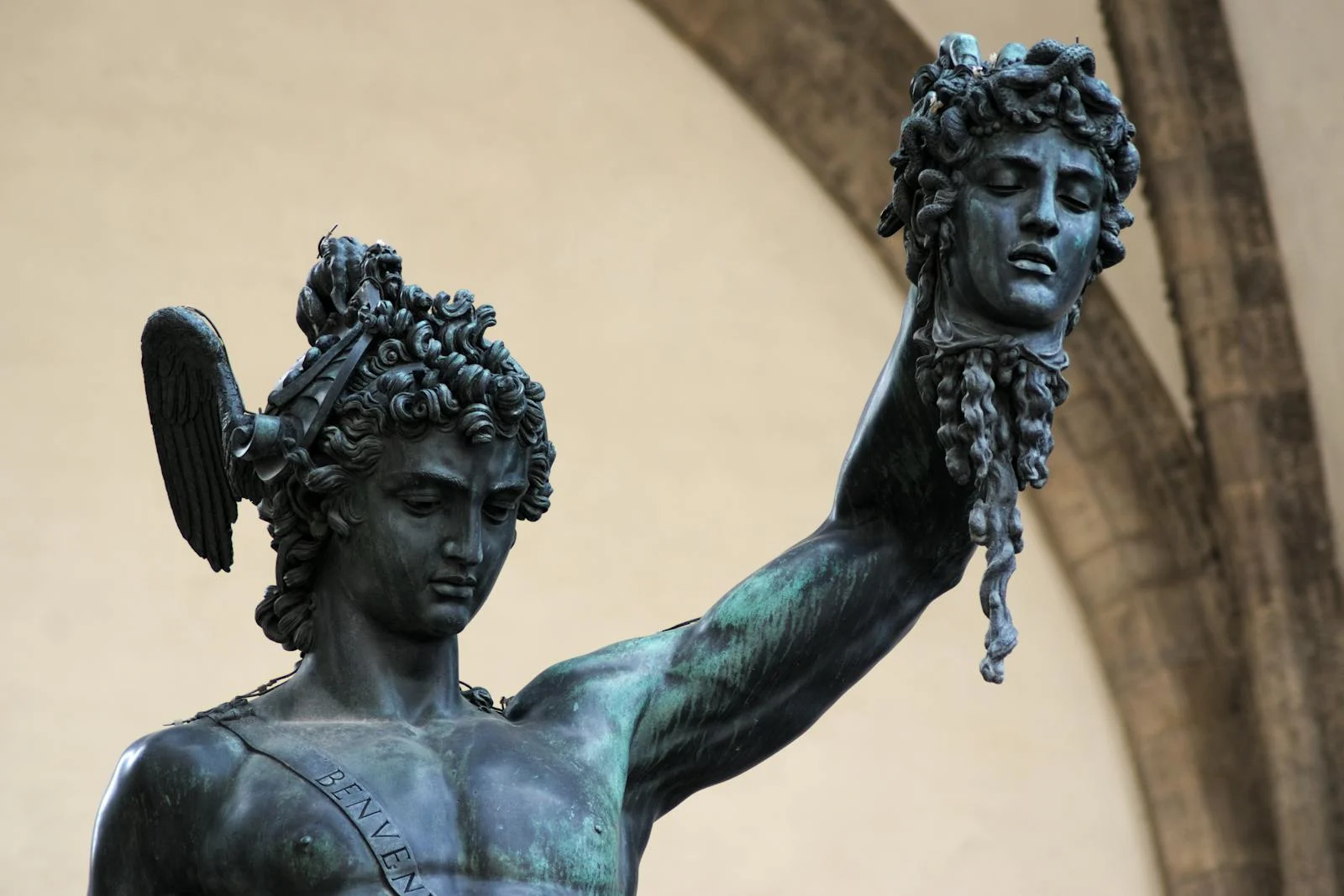The image of Medusa has always been that of a hideous monster, but what if, within her story and recent adaptations, there are suggestions of modern-day issues such as the ridiculous beauty standards towards women and physical assault?
The original story follows a beautiful woman named Medusa who wants to worship the goddess Athena. Once in the temple, Poseidon (the God of the sea) sees her and seduces her into becoming pregnant. Enraged, Athena curses Medusa to become a hideous monster. With snakes for hair and a stare that would turn a man into stone, Athena ensures that no man will ever fall in love with her again.
However, in more recent adaptations, it follows a beautiful woman named Medusa who doesn’t appreciate the catcalling or popularity that comes with this gift. Poseidon then stakes her, and when she goes sailing with her sisters, she is pressured into becoming pregnant. To find safety, she ran to Athena’s temple, and after hearing what had happened, Athena was filled with jealousy. She transformed Medusa into a hideous gorgon. She then lives on an island with her two sisters, hiding from the rest of the world. When Perseus makes his way onto the island, he falls in love with this voice and attempts to kill her. However, this didn’t work, and he lowered his shield to reveal the same eyes that would decide his fate.
The more recent adaptation is called Medusa, A ‘beautiful and profound retelling’ of Medusa’s story by Jessie Burton. This book’s issues are hard-hitting for some of the audience, especially those who may sympathise with it. This makes the problems clear and stands out. Unlike the original telling of the story, it shows the issues Medusa faced after being impregnated with Poseidon’s child, with herself and trusting others again. People find comfort in this, knowing that she regained the confidence and strength she had before. This could also be interpreted as trusting someone but then being forced to do things that perhaps you didn’t want to do with them. Medusa has become the symbol of physical assault over the past couple of years because of her story and how it has been helpful to those who found it at a time when they needed it.
The tale of Medusa gives women confidence worldwide to be okay with things that are not normal for someone to have. In Medusa’s case, snakes are used for hair, but for many women, this can represent disabilities they have had to learn to live with, just like Medusa did. It also pushes the beauty standards that women have to follow to fit into society; at the beginning, she was what society deemed as beautiful, but as soon as something changes, she is forced into isolation due to her being so hideous that the same people who called her beautiful were now scared of her.
Due to more recent adaptations of this text, more of the subtle hints of this story have been amplified to become its main points. It tackles modern issues that have become discussion points in recent times.
By Rihanne M
Queen Elizabeth’s Grammar, Alford, Newsroom
